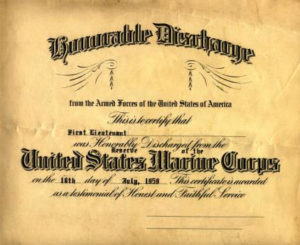 Only you and your spouse typically know where information about all your banking, bills, accounts, doctors, debts, etc. is located. By listing the details of your life, such as property, personal information and finances on one document, you can greatly assist those who may end up taking care of you in the event of illness, or taking care of your estate in the event of your death.
Only you and your spouse typically know where information about all your banking, bills, accounts, doctors, debts, etc. is located. By listing the details of your life, such as property, personal information and finances on one document, you can greatly assist those who may end up taking care of you in the event of illness, or taking care of your estate in the event of your death.
A good starting point in the estate planning process is to make a list of all the things you own and owe. The goal here is to guide you in uncovering your assets and other important information while helping you prepare an organized listing that will be used in the actual estate document preparation stage.
Often, if you already have a revocable living trust prepared, the organizational binder for your trust will often have worksheets or sections for listing all of this important information. It also serves as a reminder that the information discussed below is usually best kept with your estate planning documents. If not, get out your computer or scratch pad and get started with your list. The six sections for compiling the data will be physical items, non-physical items, debts and expenses, other important records, security, and organization/distribution.
Inventory of Physical Items
Real Estate
Let's start out with the largest asset that most people own in their lifetime – their home. Information about real estate property – including any property you own or rent and any tenant information for those that rent property from you. Joint-owned property, out-of-state real estate, raw land and vacation homes should be listed here as well. Include the property address, current market value, ownership description, a copy of your property tax bill and homeowner insurance bill, and any other pertinent data for the property.
Business
Business interests and property should be listed as well. Include office equipment you own, real estate and any other business property of significant value.
Vehicles
Vehicles and other motorized property must also be included. Here you'll list your automobiles, motorcycles, four-wheelers, boats, trailers, mobile homes and other valuable motorized property. At a minimum, you should include a description of the vehicle, current book value, the vehicle identification number (VIN), location of vehicle, keys and title and where the repair and purchase records are filed.
Pets
At a minimum, you should list your pet's name, date of birth, current vet information, any medications taken and any other pertinent information that would be useful to someone unfamiliar with your pet.
Collectibles
 If you have any collectibles such as coins, war memorabilia or sports cards, you should do an inventory and list them here. Start thinking about who would appreciate these items the most if you were no longer alive. List where they are located and the approximate value of each item.
If you have any collectibles such as coins, war memorabilia or sports cards, you should do an inventory and list them here. Start thinking about who would appreciate these items the most if you were no longer alive. List where they are located and the approximate value of each item.
Inventory of Non-Physical Items
Items that are not physical in nature are often overlooked, so pay special attention to this section because you may have to do a little extra research to uncover everything.
Insurance
First, consider any insurance documents that you own that might pay out if you have a medical emergency, disability, illness or death. You'll want to list any disability policies, life insurance, health care directive and long-term care policies in this section. It's important that you specify the exact location of these documents, policy numbers and contact phone numbers, and be clear as to how your medical and prescription expenses are paid. List any nurses, or other medical providers that administer services in your home.
Since we're on the topic of insurance, next list all current insurance policies in the following categories: medical/dental, homeowners, flood, renters, automobile, business, life & disability, and supplemental insurance (AFLAC, etc.). Be as specific as you can on these policies, giving close attention to the company name, contact number and payment schedule.
Income and Investments
Next, you should list your sources of income and other investments/savings plans. This should include any pension amounts, Social Security, annuities, bank accounts, brokerage accounts, retirement accounts, business accounts and any other income sources or investments/accounts. For each item, list the name on the account, where it's located, current value and any other pertinent contact information.
Debts and Expenses
It's very important that your spouse or trustee/executor is well aware of all your debts and expenses so that he or she can make a responsible effort to settle them in the event of your death or inability to take care of your own finances. A durable power of attorney for finances will also be a very helpful document.
Start by listing your debts from largest to smallest. In many cases, the home mortgage will be the largest debt at the top of the list. Include business real estate debt and all other existing mortgage loans, student loans, automobile loans, equity lines of credit and small credit card debts. Include your mortgage company's name, loan information, estimated balance owed, contact numbers, loan account numbers, interest rates and terms.
Next, list regular monthly expenses, both fixed and variable, that will need to be addressed. Examples include your electric bill, cable, water, auto payments and mortgage payment. Most of these items listed here will be “typical bills,” but your trustee/executor must be able to find your files and pay these bills on time.
Important Records (Military, Medical and Personal)
 Important records are those documents that would be helpful to your estate trustee and executor if you die or lose the ability to handle your own affairs. One example is marriage documents that can be important in identifying the spouse's marital right to property accumulated throughout the marriage. Other important documents include passports, legal documents, your trust and will, professional licenses, religious or ceremonial documents, diplomas and employment records.
Important records are those documents that would be helpful to your estate trustee and executor if you die or lose the ability to handle your own affairs. One example is marriage documents that can be important in identifying the spouse's marital right to property accumulated throughout the marriage. Other important documents include passports, legal documents, your trust and will, professional licenses, religious or ceremonial documents, diplomas and employment records.
You should maintain information on former marriages as this information will be helpful to survivors that may be viewing older financial and personal documents where an ex-spouse might be listed. The location of any dissolution of marriage documents should also be listed here.
Information about family members – names, addresses, birth dates and contact numbers should not be overlooked. Provide the location and description of your address book (written and electronic). In your address book, you should list all of your professional advisors, such as your accountant, financial planner, attorney and insurance agent.
Military service information is useful as well, as veterans may be eligible for military medical and burial benefits, and your family may be eligible for veteran's survivor benefits.
Surprisingly, the two most overlooked areas in an estate plan tend to be choosing an trustee/executor for the estate and laying out instructions for the guardianship of children. These are extremely important decisions and although they are certainly hard to make, they should not be put aside.
Keys and Codes
Think about all of the security items involved in your life. This includes internet account passwords, alarm codes at both business and home, keys to motorized vehicles and various safe combinations or locks that you use for security. Here you'll want to list the location of these items and any passwords or alarm codes that might be needed. Alternatively, you can simply list the individual or company to contact in case your executor needed entry or use.
Digital Assets
More and more our personal and financial lives are online. You should keep a list of all of your online accounts for banking, shopping, travel and social media along with your user name and passwords. Due to the need to have ever stronger passwords, you should consider using a password manager, such as LastPass, Roboform or Passwordbox. These tools make you set up one master password, hopefully a difficult one not easy to crack. But that is the beauty, you only need to remember one password. The program itself will then create virtually unbreakable and different passwords for each of your online accounts. Make sure your Trustee or Executor can get access to your one master password.
Organization and Distribution
You may want to consider the purchase of a small safe for your home to store your important documents, spare keys, alarm codes, combination codes and other small valuables. Not only do you provide a secure place for these items, but you'll also have a central location for your trustee or estate executor to find several of your important personal items needed for them to do their job.
This personal safe is a good place to keep copies of your estate documents such as your will, durable power of attorney for finances, healthcare directive, trust documents and all other important estate planning information; just make sure someone other than you also knows the combination. Provide a dated and signed copy of this list to your estate trustee and executor and put a copy in a safe place.
Don't expect to be able to complete this list in one day. For most people, the list will take several weeks and even after that, you may remember a few items that you overlooked. Take your time and think this through. Next to your actual trust and will, this is one of the most important estate planning documents, so don't be afraid to take your time and do things properly the first time around.
